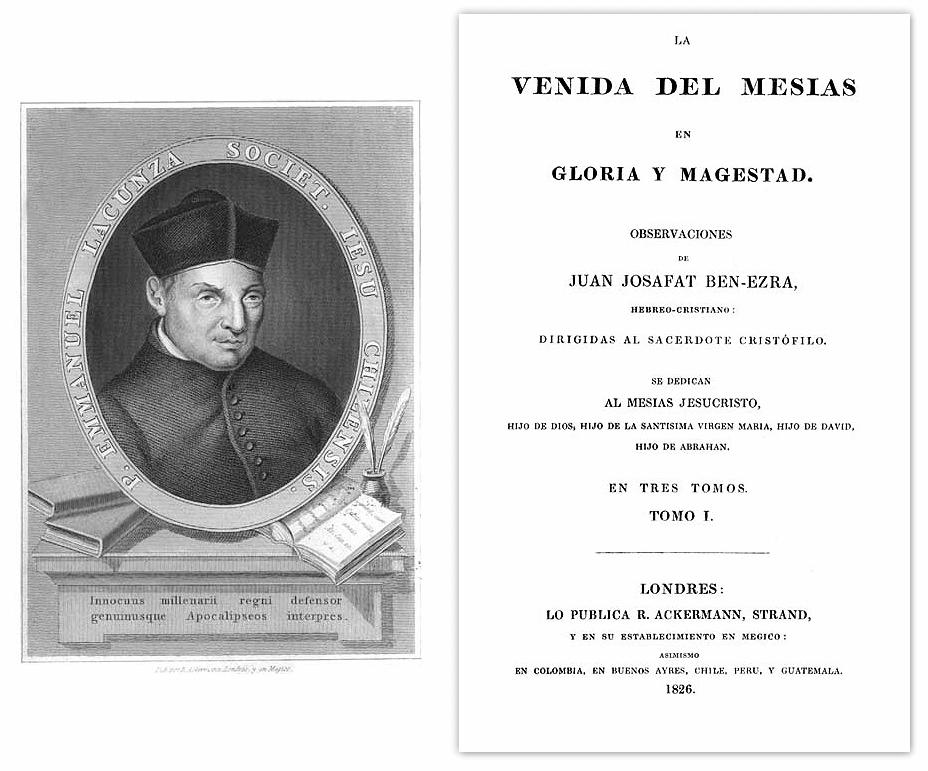They were nearer to gospel time that you, and to call the foolish is actually to be foolish yourself unless you study what they actually said, and why.
What I believe is foolish is to follow Jesuit teaching, whether preterism or futurism.
While preterism was indeed invented by a Jesuit, it is simple nonsense to claim that Futurism is a Jesuit doctrine.
Based entirely on comments I have personally found in the works of early Church writers, I can assuredly say that:
A future millennium was clearly taught at least by Papias, Justyn Martyr, Irenaeus, Tertulian, Hyppolytus, Commodianus, Lactantius, Nepos, Apollinaris and Victorinus of Petau.
A future coming of a personal Antichrist was taught at least by Barnabas, Justyn Martyr, Irenaeus, Hyppolytus, Tertullian, Commodianus, Cyprian of Carthage, John of Damascus, Cyril of Jerusalem, John of Chrysostom, Jerome, and Augustine of Hippo.
A future dissolution of the Roman Empire into ten kingdoms was taught at least by Justyn Martyr, Irenaeus, Tertullian, Hyppolytus, Victorinus, Commodianus, Lactantius, and Jerome.
God's dealing with mankind in various dispensations (yes, they used that word) was clearly taught by at least by Irenaeus, Hermas, and Ignatius.
A delayed fulfillment of Daniel's seventieth week was taught at least by the unkown writer of the so-called "Epistle of Barnabas," and Clement of Alexandria, Irenaeus and Hyppolytus.
A rapture before the great tribulation was taught at least by Irenaeus, Victorinus, and the unknown writer called "Pseudo-Ephraem." And John of Crysostem implied that some in his day were teaching that the restrained who would "be taken out of the way" was the Holy Spirit. As this is an essential element of pre-trib doctrine, it strongly implies that this was being taught in his time.
And although no document clearly teaching a future blessing for Israel survived the medieval purges, we know it was being taught in the early church from the arguments against it taught by the unknown writer of the so-called "Epistle of Barnabas," and by Tertullian, Dionysius, and Caius.
Futurism was, in actual fact, so all-prevalent in the early church that in the fifth century Jerome wrote, "We should therefore concur with the traditional interpretation of all the commentators of the Christian Church, that at the end of the world, when the Roman Empire is to be destroyed, there shall be ten kings who will partition the Roman world amongst themselves. Then an insignificant eleventh king will arise, who will overcome three of the ten kings... Then after they have been slain, the seven other kings will bow their necks to the victor." (Jerome’s comments on Daniel 7:8, as found in “Jerome’s Commentary on Daniel,” pg. 77, translated by Gleason L. Archer, Jr., published by Baker Book House, Grand Rapids, 1958.)
So futurism was unquestionably the standard doctrine of the church for its first few hundred years, and much dispensational doctrine was contained in their ministry, including a future fulfillment of Daniel's seventieth week, a future restoration of Israel, and a rapture before the tribulation.
Not even one of these claims is based on anything someone else told me. I have actual ancient quotations (with references) to back up every detail of every one of these claims stored on my personal computer.






